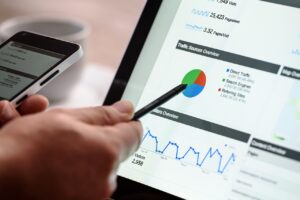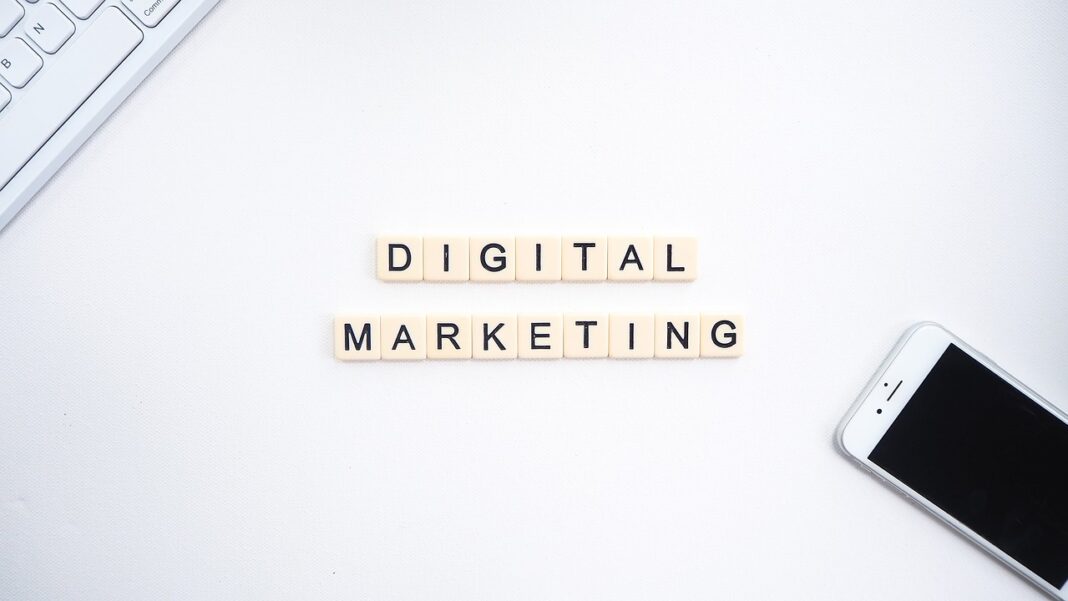
I Introduction to Digital Marketing
Digital Media and marketing help brands develop their target audience, develop marketing plans, and customize feeds. In today’s hyper-connected world, businesses can no longer rely solely on traditional marketing methods. Digital marketing is defined as the sharing of content using social media platforms and the promotion of this social media channel using digital channels, SEO, SEM and pay per click. Digital marketing has taken center stage, offering brands countless opportunities to engage with audiences, generate leads, and boost sales. If you’ve ever wondered what digital marketing entails and why it matters so much, you’re in the right place!
What is Digital Marketing?
Digital marketing refers to any form of marketing that exists online. From social media platforms to search engines, it encompasses a broad range of strategies that help businesses connect with their target audience through digital channels. But it’s more than just having a website or a Facebook page; it’s about using all the available online tools effectively.
The Evolution of Digital Marketing
Marketing has come a long way from billboards and newspaper ads. Digital marketing emerged in the 1990s with the advent of the internet and has since evolved into a sophisticated system of strategies that allow businesses to interact with customers in real-time. Remember the days when websites were simple text pages? That’s where it all began.
Traditional vs. Digital Marketing
While traditional marketing relies on mediums like print, TV, and radio, digital marketing leverages online platforms. The key difference is reach and engagement. Traditional marketing can be costly and lacks precise targeting. On the other hand, digital marketing allows for more direct engagement and provides detailed insights into campaign performance.
II Key Components of Digital Marketing
Digital marketing isn’t just about running ads online. There are several key components, each playing a critical role in a comprehensive strategy.

Search Engine Optimization (SEO)
SEO is the backbone of digital marketing. By optimizing your website to rank higher on search engine results pages (SERPs), you increase your visibility and drive organic traffic. SEO involves keyword research, content optimization, and technical tweaks to ensure your site is both search engine and user-friendly.
Content Marketing
Ever heard the phrase “content is king”? That’s because content marketing revolves around creating valuable, relevant content to attract and engage an audience. Blog posts, videos, infographics, and podcasts all fall under this umbrella. Quality content helps build trust, educate potential customers, and nurture leads.
Social Media Marketing
Social media marketing is a great way to attract target audience now a days everyone is on social media if you decide the target audience correctly for a particular product or a service We spend hours scrolling through platforms like Instagram, Twitter, and LinkedIn, right? Social media marketing leverages these platforms to connect with your audience, build brand awareness, and even drive sales. The best part? You can create highly targeted ads based on users’ interests, behaviors, and demographics.
Email Marketing
Email marketing is one of the oldest and traditional way of doing marketing with B2B and B2C Despite the rise of new platforms, email marketing remains one of the most effective ways to reach your audience. Email content includes information related to products and services which the business is offering. Whether it’s promoting a sale, sending newsletters, or nurturing leads, email marketing allows for direct communication. A well-crafted email campaign can yield significant returns on investment. Most widely used email marketing software is mailchimp
Pay-Per-Click (PPC) Advertising
PPC advertising is defined as paying for each click that is to be advertised you can pay for a click which you wish to be showed in perspective customers feeds. Ever noticed those ads at the top of Google search results? That’s PPC advertising in action. You only pay when someone clicks on your ad, making it a cost-effective way to attract immediate traffic to your website. Platforms like Google Ads and Facebook Ads are commonly used for PPC campaigns.
Influencer Marketing
Influencer marketing is a special bond between social media users and stores to market their products and services which they are offering. With the help of influencer marketing the social media brands haven grown at a surprising rate. Since 2019 it has even more grown on Instagram and YouTube channels. In 2023 the influencer marketing was valued at 21 billion dollars. With influencer marketing, brands partner with social media personalities to promote their products or services. Influencers, who often have large, engaged followings, can lend authenticity and reach to your marketing efforts.
Cost-Effective Marketing
Compared to traditional methods, digital marketing is relatively affordable. Whether you’re a small business or a large enterprise, you can tailor campaigns to fit your budget while achieving impressive results. Plus, with digital marketing, you know exactly where your money is going and can adjust strategies in real-time.
Wide Reach and Targeting Capabilities
One of the most significant advantages of digital marketing is its ability to reach a global audience. But it’s not just about reaching everyone; it’s about reaching the right people. With tools that allow you to target based on location, interests, behaviors, and even device type, your message gets in front of those who are most likely to engage.
Measurable Results
Unlike traditional marketing, where success can be difficult to gauge, digital marketing provides measurable data. You can track who viewed your ad, how they interacted with it, and whether they converted into paying customers. Platforms like Google Analytics provide detailed reports that help you make informed decisions.
III Building a Digital Marketing Strategy
So, how do you build a digital marketing strategy that works?
Identifying Your Target Audience
Start by understanding who your audience is. Are they teenagers? Business professionals? New parents? Once you know this, you can create messaging that resonates with them.
Setting Clear Goals
What do you want to achieve with your digital marketing? More traffic? Higher sales? Increased brand awareness? Setting clear goals helps you focus your efforts and measure success accurately.
Choosing the Right Channels
Not all digital marketing channels are created equal. Depending on your goals, some channels will perform better than others. For instance, if you’re targeting professionals, LinkedIn might be your best bet, while Instagram could be the right choice for a younger demographic.
IV Future Trends in Digital Marketing
As technology evolves, so does digital marketing. Staying on top of these trends is crucial for maintaining a competitive edge.
AI and Automation
While I know you might be tired of hearing about AI, it’s undeniable that it’s transforming the digital marketing landscape. From automated emails to AI-driven customer service, automation is making marketing more efficient and personalized.
Video Marketing
Videos are dominating the internet. Whether it’s short-form content on TikTok or long-form YouTube tutorials, people love consuming video content. It’s engaging, informative, and memorable—perfect for grabbing attention in a crowded digital space.
Voice Search Optimization
With the rise of voice-activated devices like Amazon’s Alexa and Google Home, voice search is becoming increasingly popular. Optimizing your content for voice search will help your business stay ahead of the curve.
V Conclusion
Digital marketing is no longer a luxury—it’s a necessity. From SEO and social media to email marketing and PPC, the possibilities are endless. By leveraging the right tools and strategies, businesses can not only survive but thrive in the digital age. Whether you’re just starting or looking to fine-tune your approach, now is the time to embrace the digital revolution.
Also Read: 10 Proven Ways to Make Money Online in 2024
FAQs
-
What is the difference between SEO and PPC?
SEO focuses on organic search rankings, while PPC involves paying for ads that appear on search engine results.
-
How important is social media for digital marketing?
social media is crucial for building brand awareness, engaging with customers, and driving traffic to your website.
-
Can small businesses benefit from digital marketing?
Absolutely! Digital marketing levels the playing field, allowing small businesses to compete with larger companies on a more equal footing.
-
What’s the best digital marketing strategy for beginners?
Start with SEO and social media marketing. Both are cost-effective and can provide excellent results with time and effort.
-
How do I measure the success of my digital marketing campaigns?
Use tools like Google Analytics, social media insights, and email tracking to monitor performance and adjust your strategy accordingly.












Comments are closed.